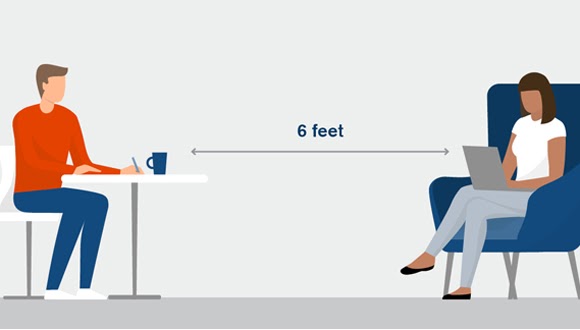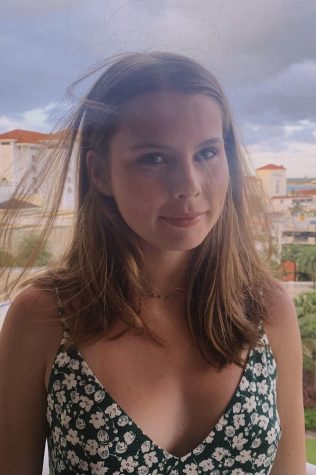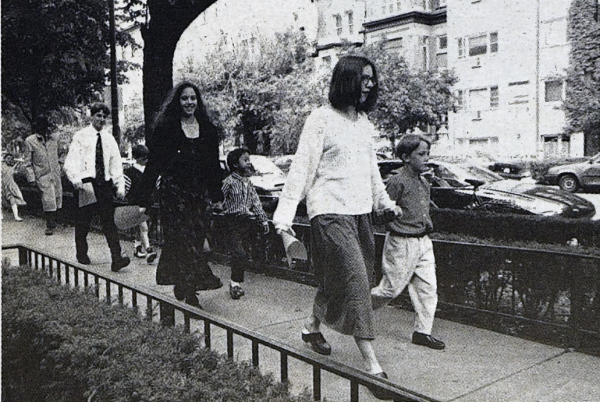What Doctors Think of Various Schooling Plans

In response to Head of School Randall Dunn’s schoolwide email issued on August 4 announcing a revised version of the back to school plan, doctors within the Latin community assessed the safety of the former and current plans to return to school.
Dr. Jyoti Patel, a thoracic oncologist and the mother of rising senior Sujan and rising sophomores Akshay and Kiran Garapati, voiced her concerns when considering the initial plan to return to the school building five days a week. “As a parent, I was excited about getting kids back to school, but certainly on a medical path, there were a number of issues in terms of density and contact tracing, and so I had significant concerns when we first saw it,” she said. “I felt like it was aspirational, and hopefully we’ll be able to get there, but I think that we need to acculturate how we interact with each other and how we see each other in baby steps.” In her eyes, the plan seemed too ambitious, especially given the density of housing nearly 500 students in the same building and attempting to maintain six feet of social distance between each of those students.
Dr. Trisha Miki, a pediatrician and mother of rising senior Malia and rising sophomore Alena Brandt, expressed fewer concerns than Dr. Patel about the administration’s former decision to return to school. “I was comfortable with the original return to campus plan if the number of COVID-19 cases in Chicago/Cook county remained low,” she said. “It acknowledged the three important principles of wearing a mask, maintaining social distancing, and good hand hygiene.”
Dr. Kristin Walter, a pulmonologist who works most directly with COVID-19 patients and mother of rising senior Charlotte O’Toole, discussed the challenge of maintaining social distance within the building as well as the possible outcomes of the original, full day school plan. “I think adequate social distancing would have been difficult to achieve with the original 5-days per week, full day in-person plan. Most likely, under these conditions, at least one person would have gotten coronavirus, leading to quarantines, a possible school shutdown, and transition to virtual learning if a big outbreak occurred,” she said.
With virtual learning set in place for the Upper School students, a forced shutdown no longer remains an issue. However, Dr. Miki fears socializing outside of school could lead to a spread of COVID-19 cases within the Latin community. “There is a flip side to [remote learning],” she explained. “The students may have more time on their hands now and may be interacting more with peers outside of school. Therefore, there may be more potential to spread or contract the disease outside of school as students may potentially loosen up on wearing a mask when around others.” She acknowledged the complexity of maintaining safety in terms of both virtual and in-person learning: in school, advisors can monitor and enforce social distancing guidelines, but students will interact with more of their peers; however, within the confines of their homes, students can spend time with whoever they choose without wearing a mask or maintaining six feet of distance.
Combining both schooling options, Dr. Walter believes that a hybrid school system could work. “Based on my experience taking care of patients with coronavirus, it is clear to me that the personal protective equipment used in the hospital works to protect against viral transmission. Although the risk in schools cannot be totally eliminated, I think with strict social distancing measures, universal masking, and keeping the students in small cohorts, the risk would have been low,” she explained. “I wish Latin had at least been able to present a hybrid plan for the high schoolers, staggering them by grade going in at least two days a week,” Dr. Walter said. Her plan is similar to the current situation, where Upper School students will come to school in cohort groups to complete school work and meet with teachers, except her idea allows students and teachers who elect to do so to travel throughout the building and learn within the classroom rather than working at a set location. By separating groups by grade, her idea would allow students to interact with the people they most likely would outside of school and gives students the in-class instruction they lost due to the pandemic.
Despite Dr. Walter’s confidence in the safety of hybrid learning, Dr. Patel doesn’t think the system would work at Latin. She acknowledged that hybrid learning provides more direct instruction, but when discussing the schooling method, she said, “It was just too much movement, too many sort of cohorts in one day to really track safely what exposure risks would be like, moving around through hallways. It felt very, very arbitrary.” Dr. Patel sees the potential benefits of hybrid learning, but she feels that maintaining cohorts seems too difficult when students each follow different schedules to accommodate their interests. “Part of Latin has been an individualized, personalized instruction–really a liberal arts education–so it’s really hard to have fidelity to cohort groups when you have so many different classes with different grade levels and people,” she explained. She believes the interconnectedness of Latin’s Upper School schedule poses a challenge when returning to school because students interact with a diverse amount of their peers on an average school day. Therefore, contact tracing gets more difficult, making it harder to minimize interactions with other students throughout the school day. Dr. Patel’s reasoning explains why the returning to school plan included three blocks of class daily in comparison to the usual six.
Whether in-person or remote, students will interact with each other in small groups or larger settings, posing the question of whether one option can ensure a greater chance of safety than the other. “Clearly, there is not an easy answer to the return to school plan,” Dr. Miki concluded.

Marin Creamer ('22) can’t wait to serve her first year as an Editor-In-Chief for The Forum. Writing and editing for the publication has been...




















































Robert Igbokwe • Aug 20, 2020 at 8:38 am
A very informative piece, Marin!! These topics can be hard because we—or at least I—get caught between what I want and what I know is right. I was disappointed to hear that I couldn’t finish my senior year at school—I even started school supply shopping :(—but I know that Latin made the only logical, safe option. I hope we’re still able to maintain the hybrid aspect of the plan in the coming weeks.